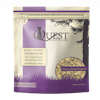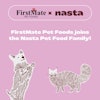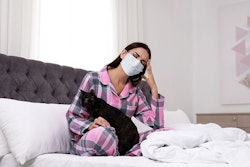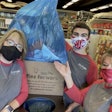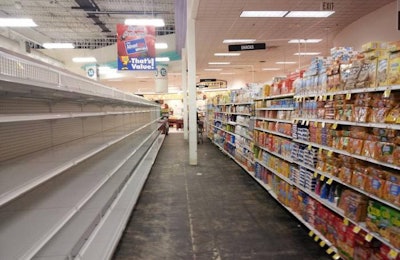
Despite reports of empty pet food shelves or delays in pet food orders from online retailers due to the COVID-19 pandemic, there is no shortage of pet food or other animal food, said Tim Schell, Ph.D., director of the Food and Drug Administration’s (FDA) Center of Veterinary Medicine (CVM) Office of Surveillance and Compliance. He urged pet owners not to hoard pet food and to keep in mind that most pet food packages can last for at least a few weeks.
Schell and other FDA officials held a brief call on March 31, 2020, for the animal food industry that provided updates and information on various matters related to COVID-19. Schell also stressed that studies to date have indicated no foodborne or food-package transmission of the SARS-COV-2 coronavirus that causes COVID-19, so no product recalls are necessary or foreseen if a person working in an animal feed or pet food plant contracts the disease.
Reporting shortages, status of ingredient approvals, inspections
Providing an overview, Steven Solomon, DVM, MPH, director of CVM, thanked the animal food industry for its collaboration, including providing information on potential product or ingredient shortages or other supply chain issues. He urged companies to contact the Federal Emergency Management Agency (FEMA) to let it know of such shortages as well as ones with sanitizing products, personal protective equipment for workers or similar safety materials, or problems transporting ingredients or products.
Solomon said CVM’s work in terms of pet food ingredient approvals – reviewing feed additive petitions or GRAS (generally recognized as safe) notifications – is proceeding as usual, though FDA staff doing the review are mainly working remotely.
Later in the call, Michael Rogers, assistant commissioner for FDA’s Office of Regulatory Affairs, said the agency, as previously announced, is currently conducting only “mission critical” food and animal food inspections, such as ones resulting from a reported food safety concern or class 1 recall, or follow-up inspections in the case of a facility with repeated regulatory infractions. Given the current climate, the inspections still being conducted by FDA are pre-announced, which is not the usual practice, Roberts added.
He addressed a question recently sent to FDA about state inspections, saying that for routine food or animal food inspections that FDA has contracted with state feed inspectors to conduct, those are also on hold. FDA’s temporary inspection policy during the COVID-19 crisis does not cover states’ own inspections, Roberts said, but he believes most states are following guidelines or protocols similar to FDA’s.
Protecting health and safety of essential pet food workers
Jenny Murphy, deputy director for food with CVM’s Office of Surveillance and Compliance, discussed the process of providing information and guidance to the Department for Homeland Security (DHS) on including animal food, pet food and similar entities as part of the country’s “essential critical infrastructure workforce.” The first version of the memo, issued on March 19, engendered questions and concerns from industry, which FDA provided to DHS, Murphy said. It has since updated the list to include other factions of the industry, including pet stores; the updated version was posted March 28.
Murphy also commented on the health and safety of animal food workers. “This is not normally in our purview, but these are not normal times,” she said, then provided a few guidelines and tips:
- Not only is it important for facilities to follow cGMPs (current good manufacturing practices) that cover sanitization, they should also go further, such as disinfecting all surfaces using Environmental Protection Agency (EPA)-approved disinfectants proven effective against SARS-COV-2.
- Physical distancing is key; companies should conduct evaluations to figure out how to achieve employee separation. But, FDA recognizes that a full 6 feet of social distancing is not always possible, Murphy said, which makes hygiene (disinfecting, hand washing, not touching your face) even more important.
- The Occupational Health and Safety Administration (OSHA) has information and guidelines for what to do if a worker tests positive for COVID-19, including how to protect other employees. The information includes state-approved disinfecting rules, ways to inform other employees that someone has tested positive (while protecting worker privacy) and referrals to Center for Disease Control (CDC) guidelines.
- Responding to a question CVM had received as to whether animal food facilities need to conduct environmental testing for SARS-COV-2 if a worker tests positive for COVID-19, Murphy said no, that wasn’t warranted. It’s better to use your time and resources to thoroughly clean, sanitize and disinfect, she added.
- In terms of whether to close a facility if a worker tests positive, Murphy said to follow local government or state guidelines; the decision will vary based on the level of outbreak in that area and rules or orders resulting from it.
For more information, CVM encourages pet food and animal food representatives to consult its COVID-19 resources page or to email the center with specific questions.
View our continuing coverage of the coronavirus/COVID-19 pandemic.

